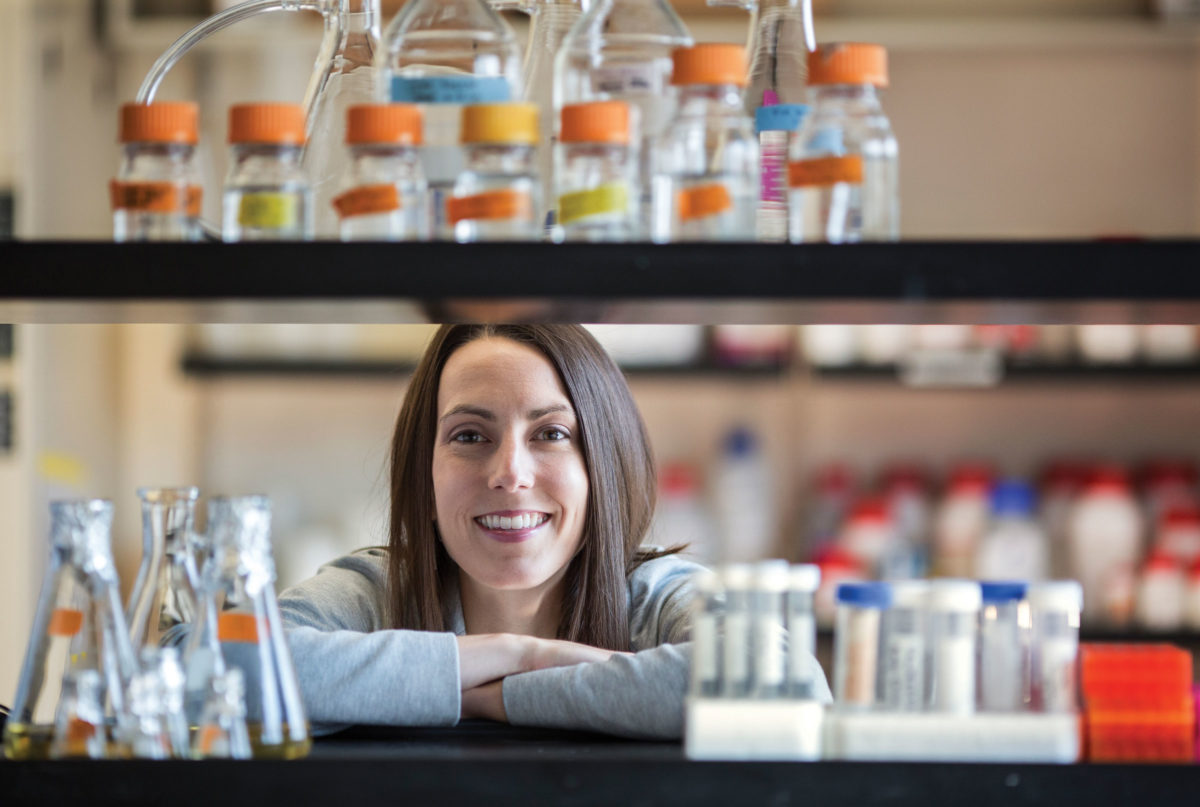Decoding Mitochondrial Transcription
Kristin Dittenhafer-Reed, Ph.d. | Assistant Professor of Chemistry
Well beyond the reach of unaided sight lies the genesis of energy we use every day to lift a cup of coffee, climb a mountain or twitch an eyelid. That is, we do when our cells are functioning properly. Many cases in which they’re not can be tied back to the specialized compartments in our cells that produce our energy: mitochondria.
“Name a disease,” Dr. Kristin Dittenhafer-Reed declares, “and I’ll tell you why the mitochondria is important for that disease.” That’s an overstatement, she immediately confesses — but not by much. Metabolism is fundamental to cellular function, and she calls mitochondria “the central metabolic hubs in our cells.”
These hubs accomplish their work via transcription and translation — reading the contents of DNA and turning them into physical products (proteins), machines the cell uses for innumerable functions, including processing nutrients into usable energy. Both the nucleus (the “brain” of the cell) and mitochondria (colloquially known as the “powerhouse” of the cell) contain, transcribe and translate DNA. Dittenhafer-Reed is investigating one protein involved in mitochondrial DNA’s transcription phase, an “unzipper” that separates DNA’s strands before the sequence is copied. She hopes to identify how this protein is regulated to modulate energy production.
“Transcription goes from blueprint to a piece of the blueprint,” Dittenhafer-Reed explains — like zooming in on the plan for a doorway from that for the entire house. “Translation goes from the blueprint to building the actual thing.” Creating another layer of complexity are chemical tags added to a protein after it is made. Like adding a mail slot to a door, these post-translational modifications can alter protein function.
“It’s well-established that these modifications play a major role in regulating transcription in the nucleus,” Dittenhafer-Reed says. “We want to know whether this mechanism also exists in the mitochondria. The goal of my lab is to shed light on unexplored biochemical processes at work in the mitochondria.”
Her research draws on an arsenal of grants and previous findings. Dittenhafer-Reed is a Towsley Scholar, and through this Hope College program she’s receiving research funds and dedicated research time over four years. Her project is also midway through a three-year, $207,900 National Science Foundation grant. At the 2019 American Society for Biochemistry and Molecular Biology annual meeting, she and student research assistants presented their findings to date — an experience that united Dittenhafer-Reed’s loves of teaching and researching as a Christian scientist.
“By exploring the intricate details of creation, you become more in awe of God,” Dittenhafer-Reed reflects. “To think that God created something so complex is amazing to me.”

